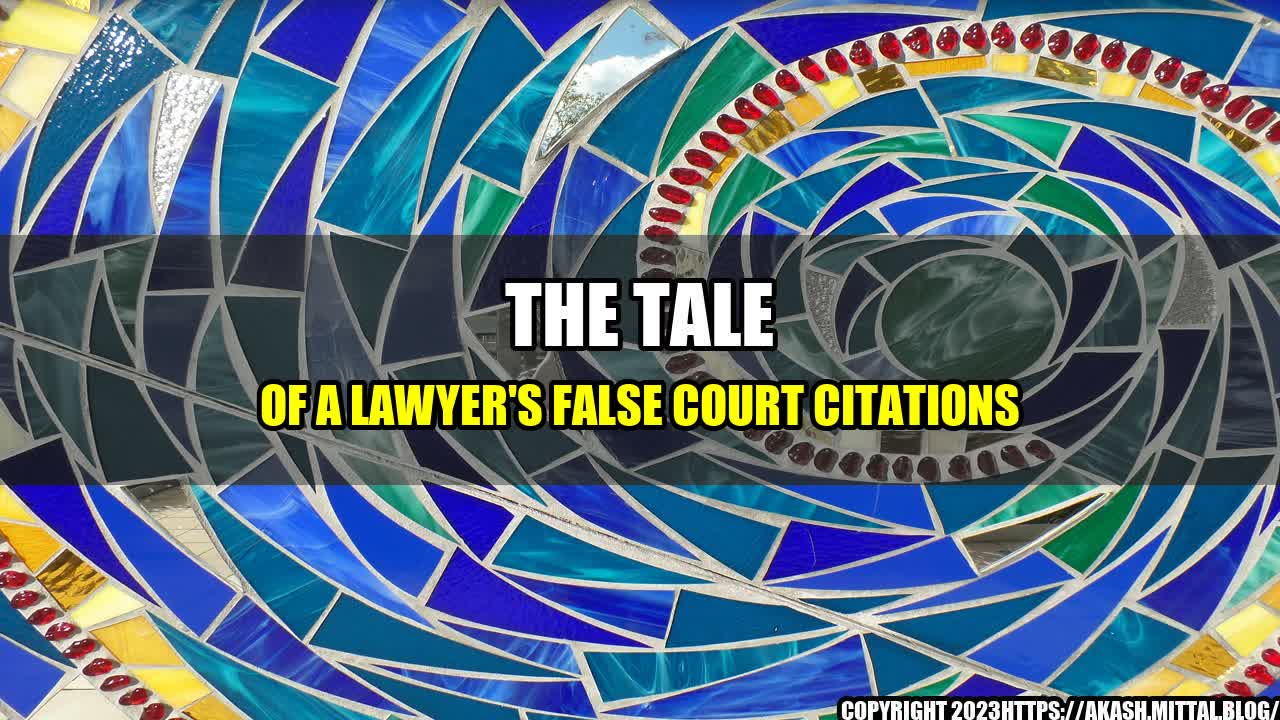
In a shocking revelation, a highly reputed lawyer has apologized for submitting fake court citations in several cases over the past few years. The accusations led to widespread outrage among the legal community and the public, highlighting the importance of integrity and ethics in the legal profession.
It all started when a judge presiding over one of the cases noticed discrepancies in a citation presented by the lawyer. The judge alerted the Bar Association, which launched an investigation and found that the lawyer had fabricated several citations, apparently to reinforce his arguments and gain an advantage in court.
When confronted with the evidence, the lawyer admitted to the deception and expressed remorse for his actions. He claimed that he had been under pressure to win cases and had succumbed to the temptation to cut corners. He also acknowledged that his behavior had undermined the credibility of the legal system and violated the trust of his clients and colleagues.
The lawyer's confession sparked a heated debate about the standards of professional conduct and the need for accountability in the legal field. Many lawyers and judges expressed outrage at the breach of integrity and the damage done to the reputation of their profession. They also called for stricter standards of proof and verification in court submissions.
The incident also raised broader questions about ethical lapses in other professions and industries, such as the financial sector, medicine, and technology. It underscored the need for transparency, honesty, and accountability in all aspects of human endeavor, especially those that involve trust and responsibility.
The lawyer's false citations serve as a cautionary tale about the perils of compromising one's ethics for short-term gains. Integrity is essential for building trust with clients and colleagues, maintaining a reputation for competence and professionalism, and upholding the rule of law. Lawyers, like all professionals, have a duty to act with integrity and honesty, even when the pressure is high and the stakes are significant.
The legal profession, like many others, relies on a shared commitment to ethical principles and a code of conduct that guides its members. Lawyers have a responsibility to uphold these principles and to avoid behaviors that compromise their integrity and credibility. Falsifying citations, or any other evidence, is a direct violation of these principles and undermines the very foundation of the legal system.
The incident of the lawyer's false citations offers three crucial lessons for all professionals who value their integrity and reputation:
The tale of the lawyer's false citations should serve as a wake-up call for all professionals to consider the importance of ethics and integrity in their work. While the temptation to cut corners or compromise ethical principles can be great, the costs of doing so can be severe and long-lasting. By embracing transparency, accountability, and honesty, we can build trust and create a more ethical and sustainable world.
Curated by Team Akash.Mittal.Blog
Share on Twitter Share on LinkedIn